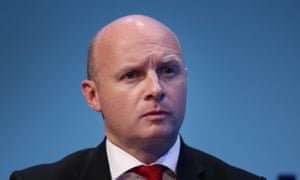A graphic Australian advertisement that highlights the link between alcohol and cancer has been nominated by drinkers as the most effective in leading them to reconsider their alcohol intake.
The video advertisement, titled Spread, was developed and funded by the Western Australia government. It shows alcohol being absorbed into the bloodstream, spreading and causing cancerous cell mutations in the liver, bowel and throat.
Researchers led by renowned international behavioural scientist Professor Melanie Wakefield tested 83 English-language alcohol advertisements from around the world on 2,174 Australian adults who regularly consume alcohol.
Study participants ranked each advertisement on a five-point scale, with a score of “one” representing a low motivation to reduce drinking after viewing and “five” representing high motivation to reduce drinking after viewing.
Spread ranked the highest with an average score of 3.77 and was favoured across a range of groups including men, women, young and older adults, and low and high-risk drinkers.
Four out of the top 10 most effective advertisements were from Australia and of those, all were from Western Australia. The least motivating ad, from New Zealand, was titled Add Nothing, and encouraged drinking water instead of beer. The results were published on Thursday in the medical journal BMJ Open.
The McCusker Centre for Action on Alcohol and Youth gave input into the development of the highest-ranked ad. The centre’s executive officer, Julia Stafford, said Spread was successful because experts in the field had been approached for input.
“We are really pleased that the evidence base for these harm-reduction ads is building and that we are learning more about what works in designing and running them,” Stafford said.
“It is important that very careful, research-based approaches are being taken.”
According to the Cancer Council of Australia, more than 3,200 cases of cancer each year could be prevented nationally if people limited their alcohol consumption.
But the CEO of Cancel Council Victoria, Todd Harper, said the carcinogenic properties of alcohol were still widely unknown in the community.
“Our 2015 survey of Victorian men and women found that nearly half of the respondents either believed that alcohol made no difference or were not sure if it had any effect on a person’s risk of cancer,” Harper said.
“It’s worrying because alcohol is a group one carcinogen – the highest classification available. It means that there is strong evidence that alcohol causes cancer at some body sites in humans.”
He said that “every drink” increased the risk of mouth, throat, bowel, liver and female breast cancers.
This risk as well as other alcohol-related harms has prompted some public health experts and health professionals to call for plain packaging on alcohol products that warn people of their risk, similar to that used on tobacco products.
But Alcohol Beverages Australia executive director Fergus Taylor dismissed the Spread adas “off the mark” and “scaremongering”.
“The industry has long advocated for targeted measures to deal with specific areas of problem consumption and misuse, as opposed to broad-based, population-wide measures like ads that use cynical scare tactics to frighten responsible drinkers,” he said.
“These ads will just be dismissed as scaremongering by the vast majority of Australians who drink responsibly and are well aware that alcohol should be consumed in moderation.”
Taylor accused researchers of “simply demonising a product that has well-established health benefits when consumed at moderate and responsible levels”.
Evidence from the World Cancer Research Fund and American Institute for Cancer Research identifies a causal relationship between alcohol and cancer. While any level of drinking increases cancer risk, this risk increases in line with the level of consumption.
Ad linking alcohol to cancer most effective at curbing drinking, study finds
